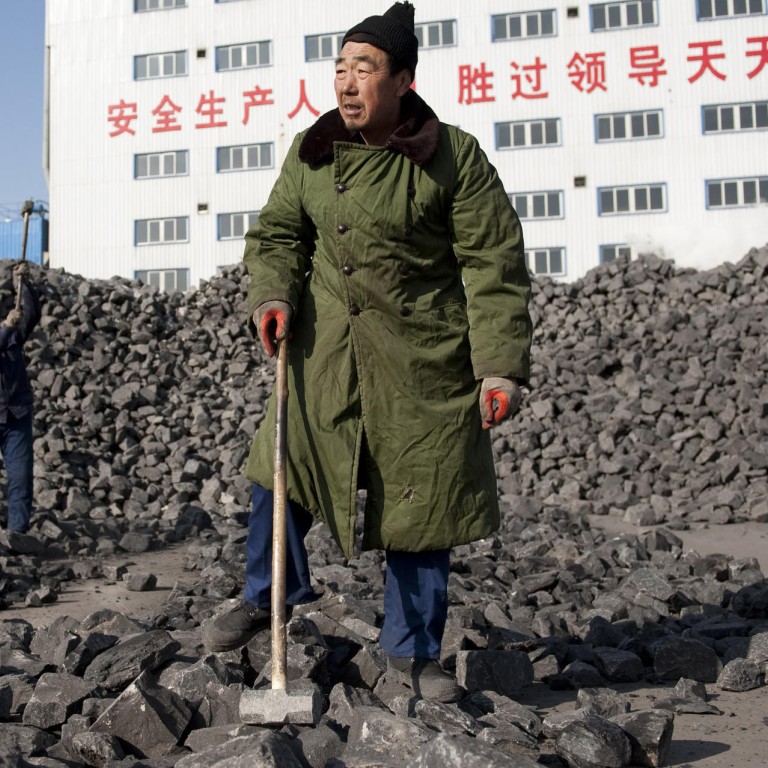
Datang soars on news of sell-off of unprofitable coal operations
Disposal of assets will lighten firm's debt load and is part of the central government's reforms
Datang International Power Generation shares rose 23.1 per cent yesterday after the company said it would sell part or all of its loss-making coal-to-chemicals and coal-to-natural-gas operations as part of Beijing's economic and state-sector reforms.
While the final price it gets for disposing of the assets to state-owned China Reform Corp will depend on their valuation and negotiations, the deal will lighten Datang's debt load and improve its profitability.
"The restructuring is hugely positive to Datang International as the coal-to-chemicals segment has not been profitable … we expect [it] to remain loss-making [this year and next year]," Credit Suisse Asia's head of utilities research, Dave Dai, said in a note.
Dai said Datang's profit would rise 9 per cent next year if a half stake in the assets was sold, and by 18 per cent if they were all sold.
Datang said the disposal was being undertaken "to conform with the request to adjust the economic structure of the state in recent years".
Restructuring is hugely positive ... as the segment has not been profitable
Macquarie Securities' head of Asia utilities and renewables research Gary Chiu said in a note the management aimed to complete the deal by early next year.
Datang International is the listed flagship of China Datang Group, one of the mainland's five biggest power-generating firms.
China Reform was set up by Beijing in 2010 to aid state firms' asset restructuring.
An analyst said the state had asked Datang to invest in nascent coal-to-chemicals and coal-to-gas projects to lessen the mainland's reliance on imported natural gas and chemicals derived from crude oil.
Datang and miners with coal resources of low heating value that were uneconomic for use in power stations were asked to commercialise technologies to turn the coal into chemicals and natural gas.
While such technologies had been proven in small-scale pilot projects, not every company succeeded in scaling them up profitably.
China Shenhua Energy's coal-to-chemicals project in Inner Mongolia posted a net profit of 1.26 billion yuan (HK$1.57 billion) last year. But Datang's Duolun project, also in Inner Mongolia, struggled to resolve technical problems after two years of trial operations.
Operating at just 45 per cent of its capacity, the project suffered a loss of 1.52 billion yuan last year.
The project's original budget was 16.2 billion yuan but its net asset value was 26.2 billion yuan at the end of last year, implying a 10 billion yuan cost blowout. Datang has a 60 per cent stake in the project, with its parent company owning the rest.
Besides Duolun, Datang will also sell part or all of its 51 per cent stake in a 25.7 billion yuan coal-to-gas project in Keshiketeng, Inner Mongolia, and all or part of its 90 per cent stake in a 24.6 billion yuan coal-to-gas project in Fuxin, Liaoning.
Morgan Stanley analysts estimate that if all the coal-to-chemicals and coal-to-gas projects were sold at book value, Datang's debt-equity ratio would fall to 310 per cent from 456 per cent.
Datang said last month its parent company would inject its unlisted coal-fired power plants into it over five to eight years.

